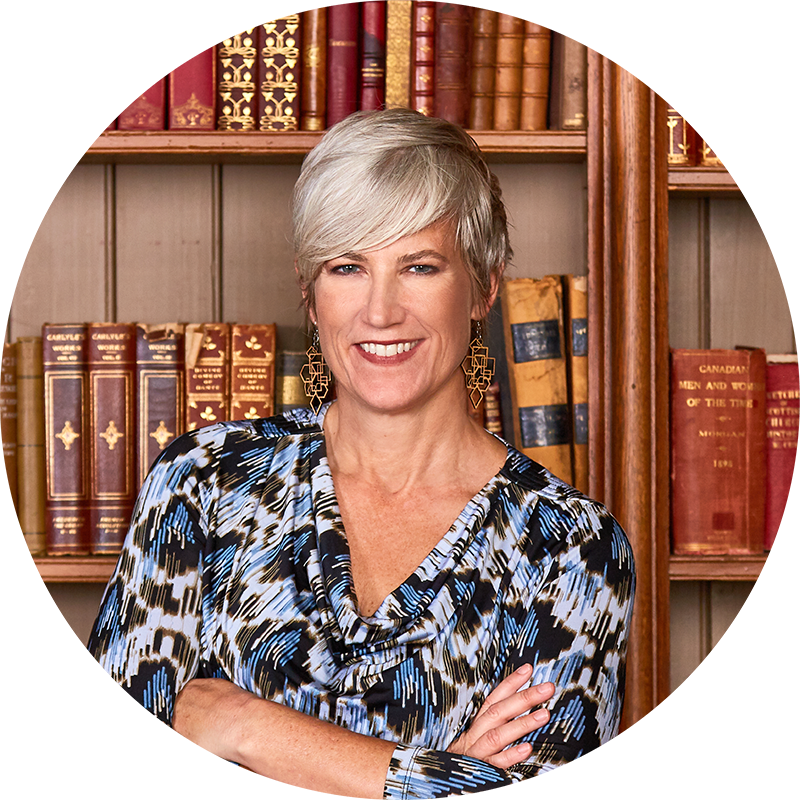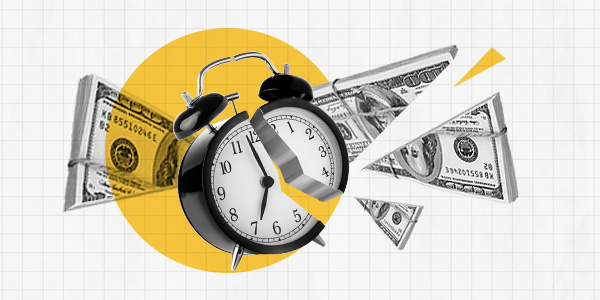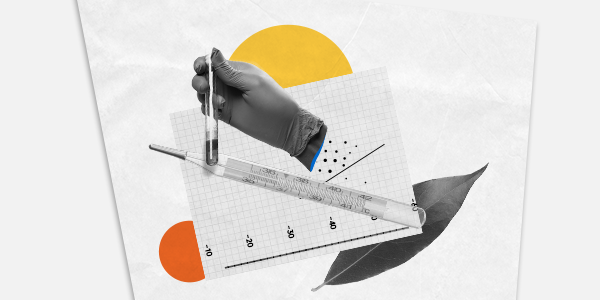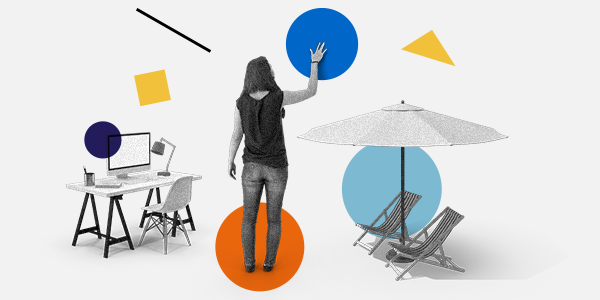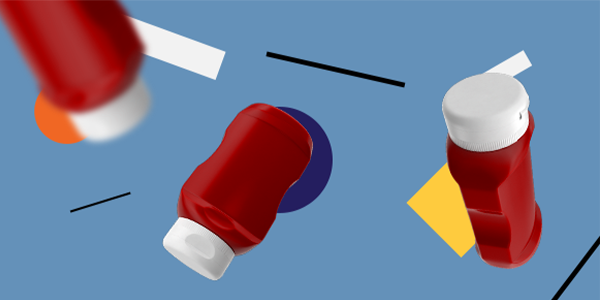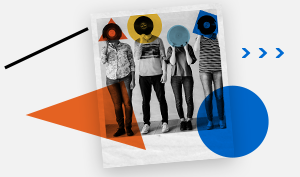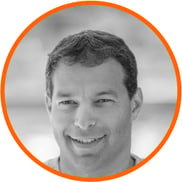
On Amir is a Professor of Marketing at Rady School of Management, UC San Diego, and Associate Dean. On is an expert on consumer psychology. His work answers questions such as when consumers will – or will not - follow the crowd, and when they will make seemingly irrational decisions.
In this conversation, Kelly and On talk about the impact of the pandemic on our perceptions and our behavior, both now and in the future.

Kelly: One of the things I'm struggling with is that there is a big chasm between those who perceive that COVID-19 presents a risk; there’s the people who have different perceptions of that risk, or who accept the risk.
I'd like to understand what you think about the role that behavioral science can play with those who don't think that this is a risk. Interventions around mask wearing are not necessarily as effective as they would be with people who already perceived a risk. How deep can we go with shaping awareness and perception in order to help those who have this interpretation, perhaps born by resistance to the means? Then they have a different view of the end and it’s inhibiting their ability to maybe have a more objective evaluation of the risk because they don't like the price that they have to pay.
On: I think you hit the hammer on the head in the sense that there are many reasons why people who underestimate the risk underestimate it. It is somewhat self-serving in the short run, which is why they don't get feedback, and it makes them correct.
An interesting analogy could be taken from the attempt at changing the attitudes towards smoking, which still has not sufficiently happened but has made progress. What they found was that if you communicate the risks for what they are, that’s so scary that you invoke every possible defense mechanism, for whatever reason, and you don't get far.
That hardcore opposition to accepting the risks has probably developed, if what we know from other instances applies here. There are many ways to go about doing that. One is to tackle the defense mechanisms directly. That’s hard and arduous work, and given that people choose their information sources, that is sometimes almost hopeless.
If we are able to shift the perceived social norm for the actual behavior, instead of tackling the source of the resistance, focus on attaining the behavior. We don't necessarily need somebody to admit that there's high risk as long as they wear a mask. If we put certain procedures in place, certain policies – it could be certain types of incentives, it could be other types of policies, to communicate that the norm now is that in this place, you wear a mask and there is a social cost to not doing that – you can get people to exhibit the right behavior.
Data suggests that with behavior change comes some dissonance, and so you could get attitude change as a subsequent benefit of changing the behavior. It's very hard for somebody to explain to themselves why they wear a mask if there's no reason at all to do it. My recommendation would be to attempt to change the behavior and have the attitudes follow.

Kelly: This pandemic has surfaced a lot of challenges in terms of conspiracy theories being shared and defended amongst even people who have pretty decent educations. Where do you think we're at in terms of the pandemic maybe helping, or maybe hurting, scientific thinking?
On: The pandemic exposed a lot more people to science and pseudoscience. What it also exposes is the biggest problem we're facing: people don't know how to tell what is real science and what is not real science.
Coupled with that is that people don't understand that science is not about truth. Science is about the fact that the best theory we have is the one we still can't reject. That means that when there's initial evidence, that is the best evidence we have until there's better evidence.
As a “customer” of science, you need to anticipate that it's not about right or wrong, per se. It's not about truth itself, it's about our best explanation at this moment.
This pandemic has increased the number of people who are interested in scientific thinking, but also highlights how much people don't understand how to consume scientific knowledge. If policymakers want to take something and do something with it, it's probably more important to teach children, from before elementary school, how to consume science, how to think scientifically, and how to ask why and not be content with answers you don't understand.
Kelly: I think that when we look at behavioral science, so many of the biases that we're familiar with can explain the resistance to scientific thinking. Things like, people want certainty, people want black and white clarity, people are resistant to updating their beliefs in the face of newer evidence. There are so many things, so many biases, that we come loaded with that scientific thinking requires that we're not victim to.

Kelly: I'm very interested in the change of habits that you see individuals making for their own lives. Do you see some good, or some bad? How's that looking from your point of view?
On: On the one hand, people seem to be doing more productive things with their weekend than they normally do, but they still don't do enough of that. On the other hand, I worry about all the habits that were positive, like going to the gym, like going and meeting family and friends, things that were habitual that we take for granted, that will show an increasing toll depending on how long this period persists.
Formation of new habits in an uncertain environment is not easy because we need the repetition and we need stability. So far, it's not the case that people feel stability.
It’s the positive habits that I worry about. Even things as trivial as getting up in the morning, brushing your teeth, getting dressed, feeling good about yourself; if there's no external need for that, and you don't do that, you might sink into a less than optimal mental state. Taking care of the self is usually done through a series of habits, and if those are somehow tampered with because of the situation, that could lead to negative consequences.
Kelly: When we look back to the Depression, for instance, I'm able to reflect on some of the things that my grandparents talked about and the impact that it had on their behaviors for the rest of their lives. For instance, their approach to food; being very, very mindful of how they spent their money; very mindful and cautious about living within their means; and a general sense of this idea that all hell could break loose and using that to, in some ways, improve their appreciation of the little things in life. But it also maybe led them to hold back that willingness to be disruptive because there was this sense of fragility.
Do you have an idea of what that might look like for the future generation or ourselves? What are those lasting changes to our beliefs and behaviors?
On: The response, with a big factor here, is how long this period persists. This is true, both for the economic impact and for the individual personal impact. I think that that if this persists not too long, what you'll see is some rebound of appreciation of everything we lost during this period.
I have an 18-year-old, about to go to college. Most of her generation grew up thinking that life is only great. Many of them have traveled and seen developing countries, but that seemed like someone else's problem and someone else's problems disappear very quickly.
This is the first day of experiencing a threat, and I think that will have some lasting impressions. But again, if the period is not too long, it's probably not going to leave a big mark, like you and I saw with our grandparents and our parents. If this period is long, if it takes two or three years until there's a vaccine, and if everybody ends up sadly knowing a close one who suffered greatly from this disease, that's going to create a generation that is much more occupied with mortality salience.
That could both spur a generation that is more innovative and works hard to avoid future problems like that, but it could also hinder innovation and creativity with negative mental states.
I tend to take the optimistic side. My guess is that this pandemic will not last too long, and the lasting and remaining impressions of ours and the next generation will contribute to a better readiness for things like that in the future. We will demand our governments and politicians do what's necessary, but probably will not get as extreme, long lasting responses as the Great Depression.
Kelly: Maybe if I could join you in optimism, one of the hopes that we could have is that as a global world, we're all in this together, that we need innovation and creativity and science to help us tackle these kinds of challenges.


